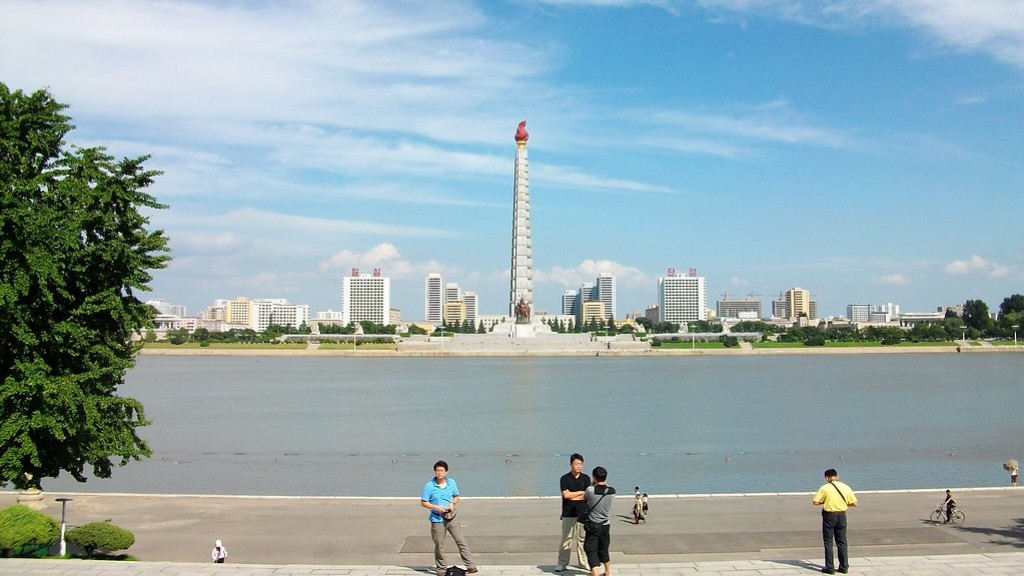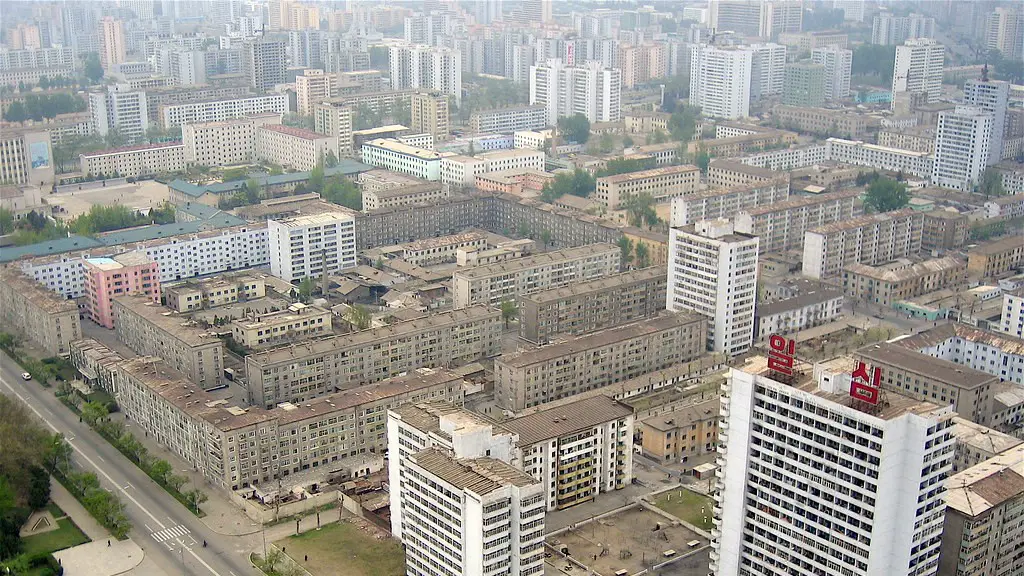Background Information
North Korea, officially the Democratic People’s Republic of Korea, is a country occupying the northern half of the Korean Peninsula. It is a single-party state under a unified leadership, currently headed by Kim Jong Un. North Korea is a nuclear-weapon state and possesses active stockpiles of chemical and biological weapons. It is internationally isolated due to its oppressive
and authoritarian regime, cult-like personality cult of its leaders and clandestine nuclear program making it a major challenge for the international community. This unique geopolitical context gives North Korea a heightened strategic value in world affairs and forward looking approaches must be adopted to facilitate the peaceful denuclearization of the Korean Peninsula.
Strategic Value
North Korea’s strategic value is one of the most important elements behind its longevity and resilience. Located on the Korean Peninsula as a buffer state between China to the north and South Korea, the United States and Japan to the South, North Korea is key to any major shift in the regional order. It’s close ties and presence within a volatile region prompted the United States to develop a nuclear weapons program in the 1950s to defend South Korea against a potential North Korean nuclear strike. Furthermore, its recent close alignment with China, which also regards North Korea as a buffer state, has provided North Korea with the political and economic backing to persist in the international realm.
Economic Problems
North Korea is facing an immense economic crisis due to its seclusion from the international community and resultant shut down of the nation’s economy. This has resulted in consistent decrease in food production and crude utilitarian standards of living that, coupled with their disproportionately large defence budget, have forced North Korea to spend, on average, 36% of its GDP directly on propagation and defence of their regime. As of March 2019, the United Nations estimate that roughly 10.3 million people, comprising 43% of the total population, are living in a condition of food insecurity while 57% are estimated to be food secure.
Strained Diplomacy
North Korea has always been hesitant to accept certain forms of diplomacy as could be seen through their reckless attitude towards negotiations, from peace talks and agreements with the South to denuclearization negotiations with the United States. As of 2019, North Korea does not participate in any forms of international treaties and agreements. Through such diplomatic positions, North Korea is able to put itself in a more favourable position that, in turn, places the international community in a weaker bargaining position, respecting their will to participate in discussions but also giving them vast control over the proceedings once they do join in.
South Korea’s Perspective
South Korea’s attitude towards North Korea has drastically changed since President Moon Jae-in was elected and his policy shifted towards greater rapprochement and peaceful negotiations. Although South Korean public opinion towards unification is generally more positive than before, a large percentage of the population still sees it as a high-risk endeavor, considering North Korea’s unstable political situation. There are also public advocates for the removal of North Korean threats such as its nuclear program for the safety of South Korean citizens before reunification plans begin to materialize.
Current Status
Currently, North Korea is facing consequences due to its persistent defiance of the international community. A series of UN Security Council Sanctions, along with other International Sanctions, were imposed in response to North Korea’s nuclear testing. These sanctions have severely weakened North Korea’s ability to sustain itself economically and left it in an external political vacuum. North Korea’s most recent activity has been lashing out against the US, mostly in retaliation to their sanctions, and this pattern has continued since 2017, raising the uncertainty level of diplomatic relations between the two countries in the process.
International Response
In the international community, the primary consensus towards North Korea has been that of low engagement in its foreign affairs. Most countries have adopted a wait-and-see attitude due to its volatility while encouraging the development of peace talks on the Korean Peninsula as the necessary first step in easing tensions. Being an isolated nation largely ruled by a centralized regime, North Korea’s foreign policy decisions, both in the past and in the present, have been reflective of its leaders personal goals and objectives, and as such provides less than ideal situation for the international community to negotiate with.
United States’ Stance
The United States of America is one of the most influential countries in the world and their stance towards North Korea has been highly visible in recent years. The Unites States has made it clear that North Korea’s acquisition of nuclear weapons and the threat it poses to international security is unacceptable. As such, the United States and its allies have enforced a series of crippling economic and diplomatic sanctions on North Korea in an effort to bring them back to the negotiation table. As of today, the US still abides by a “maximum pressure” policy by maintaining its economic sanctions while simultaneously reassuring North Korea of a peaceful solution and better future through negotiations.
Proposals for Progress
Proposals for progress on the Korean Peninsula have been diverse and numerous, ranging from hardline sanctions to peaceful negotiations. One of the most popular solutions put forward is the “three noes” policy, which calls for no use of force, no proliferation of North Korean nuclear weapons, and no regime change. While these principles provide a degree of security for both North and South Korea, there needs to be a more comprehensive and peaceful solution in order to bring about lasting peace on the Korean Peninsula.
Regional Politics
North Korea’s role in regional politics, particularly the China-North Korea relationship, has been a major factor in the current status of the Korean Peninsula. North Korea rely heavily on China for its political backing, economic aid and military support. The China-North Korea strategic partnership has been a major source of stability on the Korean Peninsula as it acts as an deterrence against the use of military force.
International Organizations
The existence of various international organizations have contributed to the diplomatic efforts to resolve the tensions between North and South Korea. The United Nations has been a mediator to ensure peace and stability on the Korean Peninsula by providing aid and support to facilitate peace talks and the eventual denuclearization of North Korea. Founded in 1991, the Korean Peninsula Energy Development Organization is also one of the many international organizations to help on the Korean Peninsula. It was an effort largely backed by the United States to provide a nuclear energy alternative to North Korea.
Policy Implications
As North Korea faces numerous international sanctions, it is imperative for the international community to manage North Korea’s decisions without completely isolating it from the world. Robust diplomatic engagement between international actors is essential for any kind of long-term solution and this engagement must be coordinated by a multilateral body to ensure an effective and unified approach. Additionally, as North Korea is often subject to political and socio-economic instability, it is critical to ensure that any policy approaches are effective yet flexible enough to keep up with the changing environment in the Korean Peninsula.
Refugee Crisis
As the situation in North Korea continues to be volatile and unpredictable, many North Koreans have chosen to flee in search of better lives abroad. Currently, there are over 30,000 North Korean refugees living in South Korea, making it the largest population of North Koreans living outside North Korea. It is estimated that nearly 8.7 million North Koreans remain in North Korea, making them highly vulnerable to the harsh conditions in the country.
Cultural Exchange
Recent diplomatic efforts have provided a platform for North and South Koreans to come closer together despite their differences. People-to-people exchanges between the two countries have opened an opportunity for both sides to expand their understanding and appreciation of each other’s culture. South Korea has seen a rise in the number of cultural performances, films, food, and books made by North Korean defectors in recent years, highlighting the effects that international sanctions have had on the North Korean population.
Conclusion
The situation on the Korean peninsula remains extremely fragile as North Korea is increasingly isolated and kept away from the international community’s agenda. While sanctions imposed by the U.S. and its allies are seen as an effective way of pressuring North Korea, only comprehensive and comprehensive-minded diplomatic engagement and dialogue can truly achieve long-term peace, stability and denuclearization of the region. Furthermore, humanitarian issues, such as the North Korean refugee crisis and cultural exchange, must also be addressed in order to truly integrate North Korea into the international framework.



